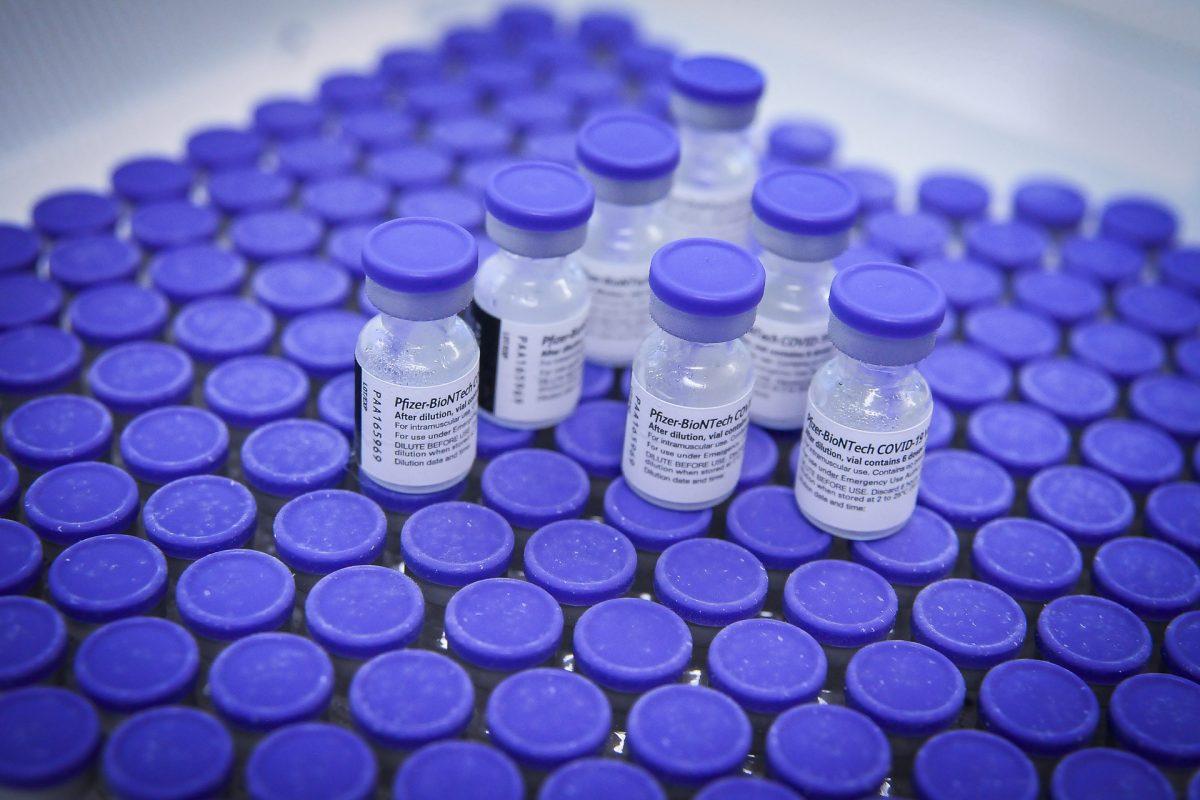Today, December 22, the Food and Drug Administration (FDA) approved the first oral treatment for COVID-19: the Pfizer Paxlovid pill. The pill, taken in doses of three pills twice a day for five days in combination with another medicine called ritonavir, is meant to decrease the number of hospitalizations among people who contract the virus. It is not a vaccine nor is it a preventative treatment. Rather, it is only taken after COVID-19 infection and is prescribed by doctors for individuals who contract COVID-19 and are at high risk for hospitalization. The U.S. government has a contract with Pfizer to purchase 10 million doses of the pills, but supply will be limited until 2022.
The Pfizer pill may be the first to be approved, but it may not be the only one. Another pill, made by pharmaceutical company Merck and biotechnology company Ridgeback Biotherapeutics, is currently being weighed by the FDA. This pill, known as molnupiravir, is also taken twice a day for five days, but with four pills at once instead of three, and without the aid of other medication. While the Merck pill was recently recommended to be approved by an FDA advisory board (in a narrow margin), it has been shown to be far less effective and safe than the Pfizer treatment. The Merck pill has already been approved in several countries such as the U.K., and is expedited to have more supply than the Pfizer pill. The U.S. government has already signed a contract to order three million doses despite its lack of FDA emergency use authorization (EUA). The Pfizer pill is approved for ages 12 and up, while the Merck pill is expected to be approved by the FDA this week for ages 18 and up.
Neither Pfizer nor Merck have released detailed clinical trial results, but they have released some preliminary data. Pfizer ran a randomized trial of 2,246 COVID-infected adults to determine the safety and efficacy of its Paxlovid pill. The pill showed 89% efficacy, meaning there were 89% fewer hospitalizations or deaths among Paxlovid recipients who took the pill within five days of their first symptoms, compared to placebo recipients. The pill was 94% effective in people ages 65 and over, which is promising for the first antiviral COVID treatment. Nobody who received the pill in the trial died, while 12 placebo recipients died from COVID. The pill does not alleviate COVID-19 symptoms, but rather keeps them mild to moderate rather than severe. Rather than attacking the COVID spike proteins which allow them to attach to human cells, the Paxlovid pill blocks an enzyme involved in the replication of the virus. As such, Pfizer says they expect the pill to be effective against new variants such as Omicron. Additionally, the pill seems to not have any side effects, as placebo recipients actually reported more mild and severe adverse events than recipients of the Pfizer pill.
So the Pfizer pill is effective, but what about its rival from Merck? That is a different story. According to the trial results submitted by Merck to the FDA, the Merck pill only reduced hospitalization by 30% among COVID patients. Merck conducted two trials. The first included just 762 participants, while the second had 646. Participants took either the pills or placebo starting within five days of their first symptoms. In the first trial, the hospitalization or death rate dropped by half with the Merck pill, but in the second group, there was almost no difference in the rate of severe cases among pill and placebo recipients. This may indicate that the pill is not highly effective against the Delta variant, which was more prevalent in the second trial. The Merck pill is expected to be at least somewhat effective against the Omicron variant. While the Merck pill showed little to no immediate side effects just like the Pfizer pill, it works in a different way that is concerning to scientists. The Merck pill enters the virus RNA and creates errors that make it difficult for the virus to replicate, but these intentional mutations could backfire and make a stronger mutation of COVID-19, since the pill has been found to slightly alter the COVID spike protein. The Pfizer pill is much safer in this regard because it is not expected to interfere with human enzymes like the Merck pill could. The Merck pill is expected not to be approved for pregnant women, as it could cause birth defects thanks to possible mutations of human enzymes. The Pfizer pill is not expected to have these issues.
The Pfizer and Merck pills are expected to revolutionize COVID-19 treatments by making them available to administer at home. Now, individuals who contract COVID have an option to decrease their risk of hospitalization or death drastically. Regardless of whether or not the Merck pill is authorized, the Pfizer pill will have to roll out in huge quantities to be an effective combatant against the new COVID-19 variants.





































